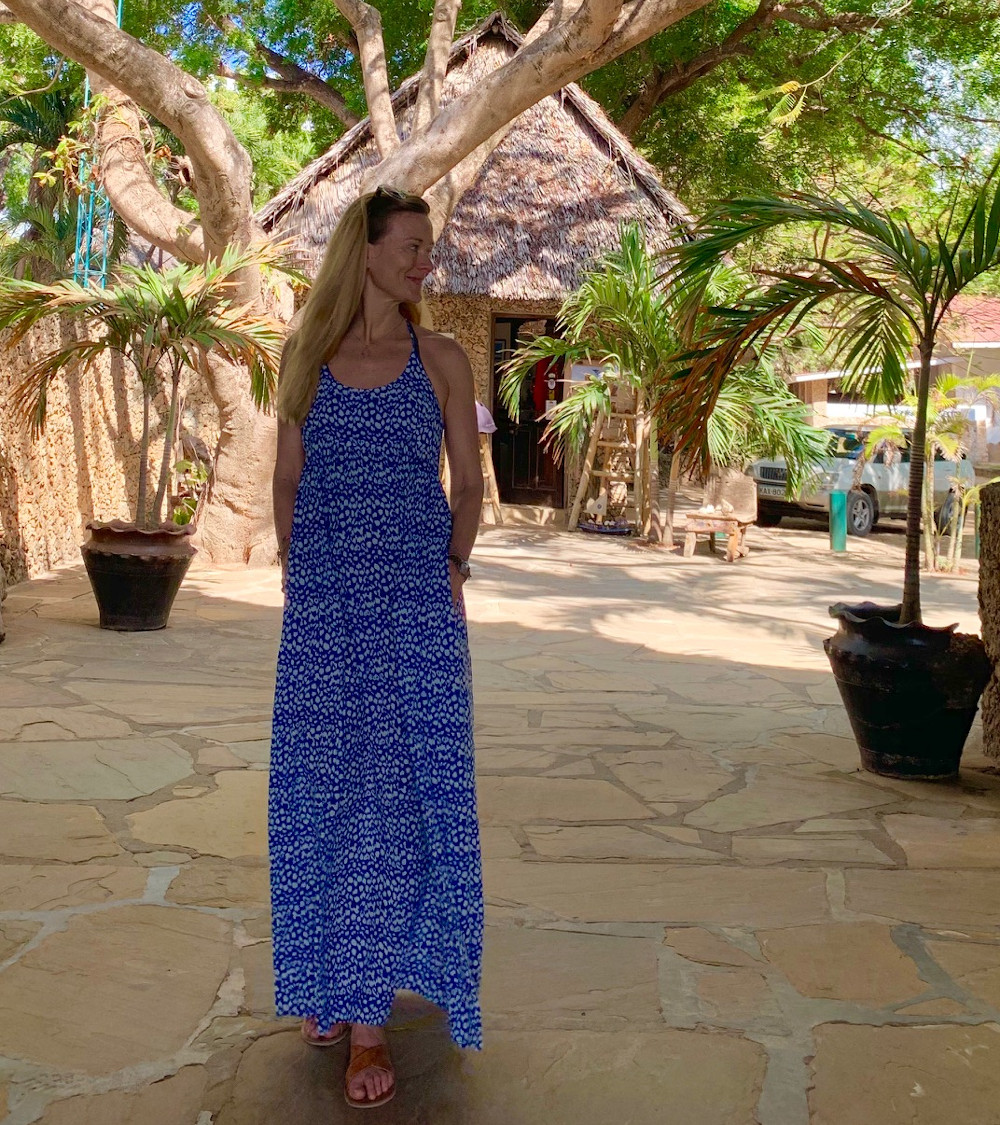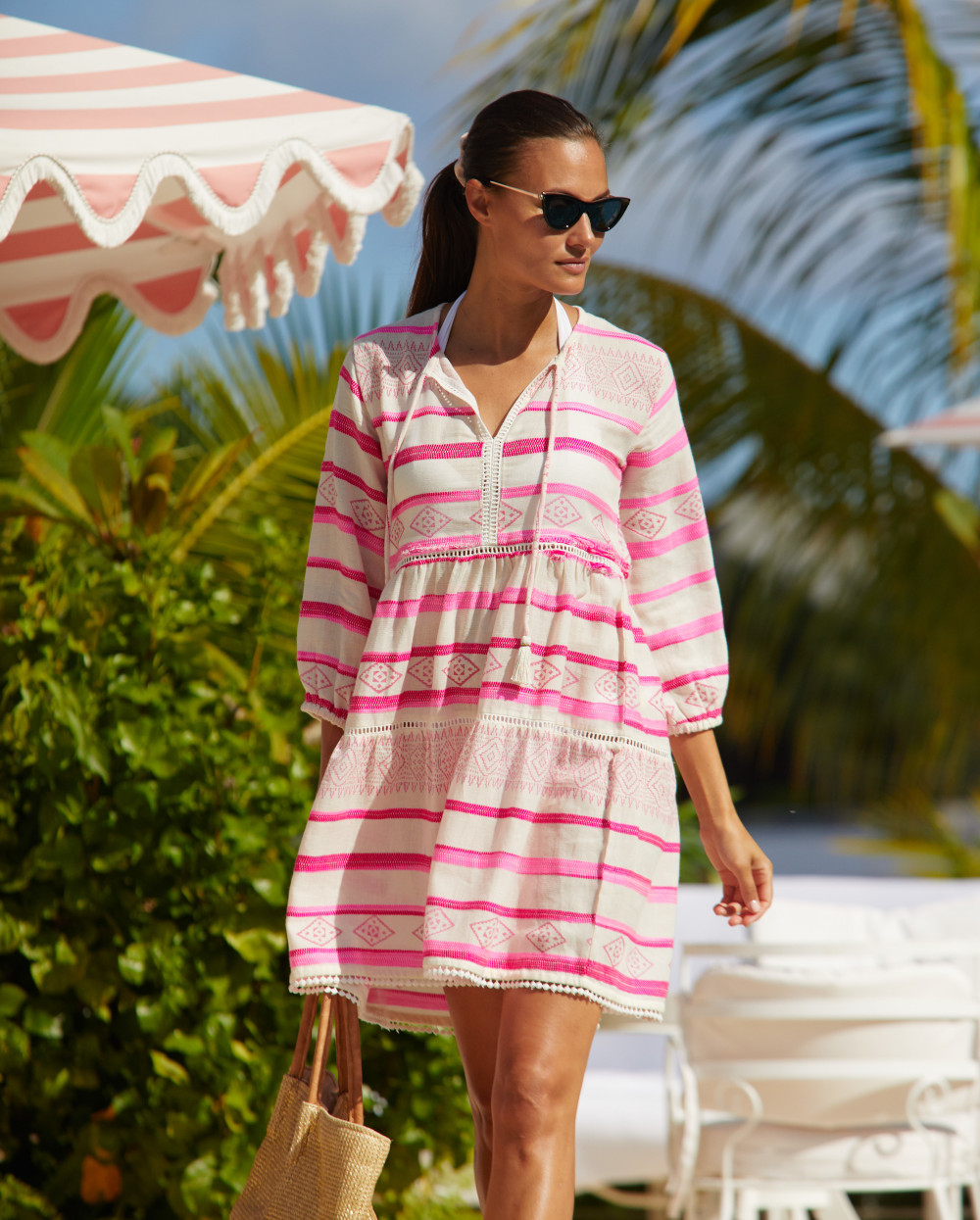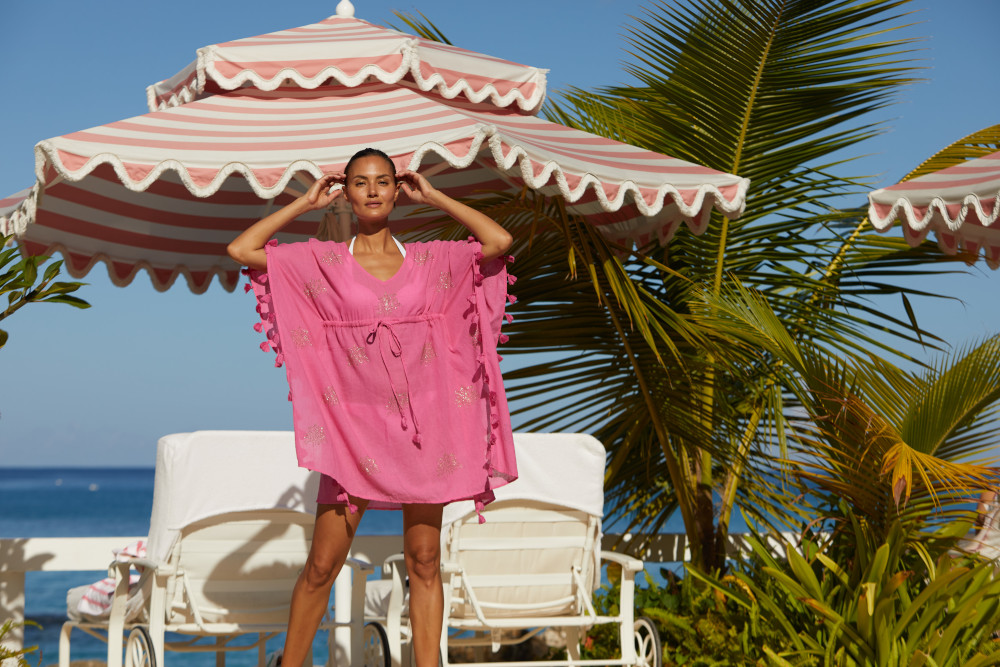Luxury with a conscience: Discovering Aspiga, the clothing and beachwear brand with a difference
Aspiga is a luxury clothing and beachwear brand that is all about sustainability, timeless ethical fashion and giving back. Launching in 2006, selling hand beaded sandals and belts made by artisans in Kenya, the brand now sells a large range of sustainable summer clothing and fabulous swimwear and beachwear.
We sit down with founder of Aspiga, Lucy Macnamara, to find out her inspirations, values and how sustainability and giving back are at the core of the business.

What inspired you to launch the brand?
I was in South Africa on holiday and the lodge I was staying in sold the leather beaded disc sandals from Kenya, and I fell in love with them. I spent the next two years trying to source them from Kenya and then launched selling them, and a few belts to the trade, in 2005 at Top Drawer, getting into over 40 shops, including Fenwicks of Bond Street. From 2006 onwards (when I left my part time job working for a charity to work on Aspiga full-time) we started designing our own styles along with the leather beaded belts to sell to the wholesale market.
Can you describe the Aspiga style and who is your target customer?
She is between 30 to 60, feminine and stylish, wants something different and cares about the story around where her products come from.
Do you have a favourite piece in the SS20?
My personal favourites are the Alice shirt dress, Valentina white cotton lace blouse and our wrap dresses and Sophia kaftans.

Tell us about the ethical and sustainable focus behind Aspiga?
The Aspiga mission is to always operate with people and the planet at the forefront of our minds. We strive to minimize harm to our planet in all that we do, and this is reflected in our choices of fabrics, production processes, packaging and more. We’re proud campaigners of slow fashion, which is why we design clothing intended to last. This means creating timeless pieces through carefully selected fabrics, precise silhouettes and attention to detail. We are open, honest and straightforward about where we are, what we have achieved and where we need to improve. We also work with artisan groups, not for profit organisations, small family run businesses and tribal groups instead of large commercial factories.
We are proud to work with all of the above, especially artisans, who help to keep skills, technique and culture alive through their craft. We especially love to work with and support women; our main sandal supplier is a lady who set up her business 10 years ago when she was just 23 years old, and has worked with us ever since. Many of our suppliers’ female workers do piecemeal work in their own homes, which enables them to look after their young children at the same time.
Our SS20 collection also includes a wide range of linen, which is one of the most sustainable fabrics around and we have moved all our cotton to organic cotton and have made a commitment not to be using man-made materials such as polyester.

Your Kenyan beach clean initiative is really impressive, what’s the plan for this year?
We will continue to run monthly clean ups in Kenya, joining a bigger community initiative once a month. We will be paying for the school fees of the 12 children who are doing the clean ups with our suppliers, as their parents were struggling to find the money to pay for their fees. We are also opening it up to our customers to do beach clean ups when they are on holiday or near a beach and if they send in images of their beach clean ups with #aspigabeachclean then we will give them 10% off their next order.
What has been your biggest achievement to date?
Gosh, that’s a tricky one; staying afloat! Setting up and running a small retail business from scratch and with no investment hasn’t been easy. But, I guess, on top of that, it was maybe wining a recent competition with a trade show in the USA called Cabana, where we won for best beach clean-up.
What’s in the pipeline for the future?
We are excited about all the new sustainable fabrics we hope to be working with next year like Tencel and continuing to work with the local communities and charities in the countries where our products are made.
